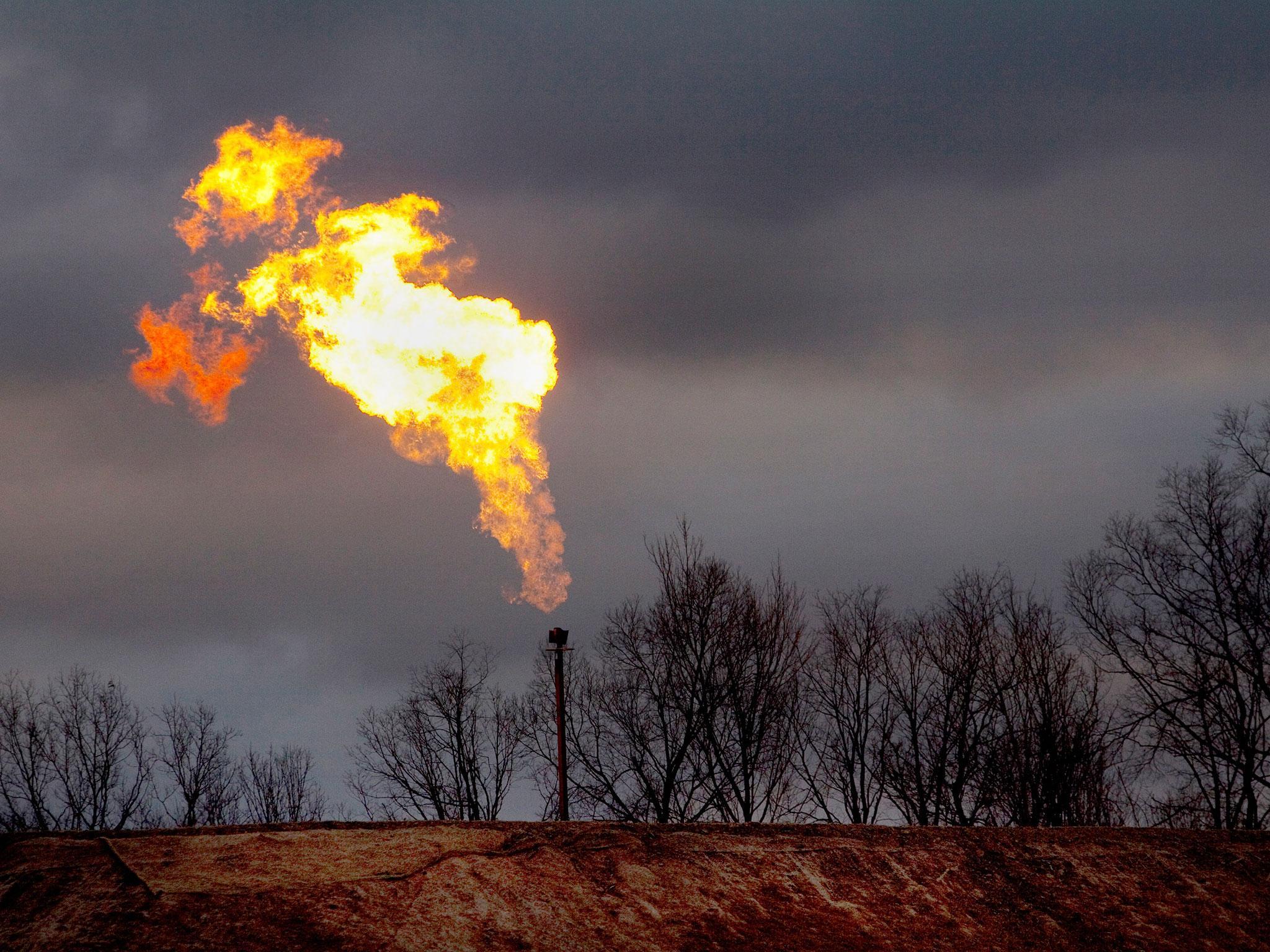Fracking can contaminate rivers and lakes with radioactive material, study finds
Stream sediments were found to be so radioactive they were nearly at the level that would require disposal in a specialist facility in some US states

Your support helps us to tell the story
From reproductive rights to climate change to Big Tech, The Independent is on the ground when the story is developing. Whether it's investigating the financials of Elon Musk's pro-Trump PAC or producing our latest documentary, 'The A Word', which shines a light on the American women fighting for reproductive rights, we know how important it is to parse out the facts from the messaging.
At such a critical moment in US history, we need reporters on the ground. Your donation allows us to keep sending journalists to speak to both sides of the story.
The Independent is trusted by Americans across the entire political spectrum. And unlike many other quality news outlets, we choose not to lock Americans out of our reporting and analysis with paywalls. We believe quality journalism should be available to everyone, paid for by those who can afford it.
Your support makes all the difference.The vast amount of waste water produced by fracking can contaminate rivers, lakes and other waterways with radioactive material and hormone-affecting chemicals, according to new research.
The study tested sediments and groundwater downstream of a treatment plant in Pennsylvania that was designed to make the water used as part of the fracking process fit for release into the environment.
The scientists, from Pennsylvania State University and other academic institutions, discovered that despite this process there were “high loads of chloride, barium, strontium, radium and organic compounds” in the Conemaugh River watershed.
Stream sediments in Blacklick Creek, just downstream from one treatment plant, were found to contain about 200 times the level of radium upstream of the plant.
The highest concentration of radium found was just 14 per cent below the level at which it would have to be treated as radioactive waste in some US states.
However the researchers said the risks of the pollutants discovered were “difficult to assess”.
Writing in the journal Environmental Science & Technology, the scientists said: “Large quantities of oil-and-gas wastewater with high loads of chloride, barium, strontium, radium, and organic compounds have been discharged into the Conemaugh River watershed.
“Stream sediments in Blacklick Creek immediately downstream of centralised waste treatment plant number one were found to contain [radium] levels that were about 200 times greater than activities measured in upstream and background sediments.
“Elevated concentrations of radium and other alkaline earth metals have now been detected in reservoir sediments about 19km farther downstream of this plant.
“Despite several other sources of contaminants such as coal bed methane, coal mine drainage, and flue gas desulfurization releases that can impact surface water quality, we document multiple lines of evidence that indicate the legacy of unconventional oil-and-gas wastewater disposal has impacted stream sediments and porewater [groundwater] on a watershed-scale.”
They said while the amount of fracking wastewater was “relatively small” compared to the volume of the stream it “nonetheless had a measurable impact”.
“Risks posed by the pollutants buried in the sediment and porewater of the Conemaugh River Lake are difficult to assess,” the paper added. The watershed is not used as a source of drinking water, the researchers added.
Fracking involves forcing water and other substances, which can include radioactive ones, into cracks in porous rocks that contain significant amounts of fossil fuels.
It has become common in the US, accounting for more than half of oil production and two-thirds of gas production.
In the UK, the Conservatives have said they want to see a fracking ‘revolution’ in the hope of providing a noticeable boost to the economy.
But the party’s general election manifesto said this could only be done “if we maintain public confidence in the process, if we uphold our rigorous environmental protections, and if we ensure the proceeds of the wealth generated by shale energy are shared with the communities affected”.
Environmentalists argue that developing fracking in Britain is a mistake because it is opening up another source of fossil fuels when the country should be looking to reduce emissions. Supporters argue that gas produced in this way is ‘greener’ than coal or oil.
The Conservative think tank Bright Blue has argued the priority should instead be to promote cheap renewable energy, like wind and solar.
Join our commenting forum
Join thought-provoking conversations, follow other Independent readers and see their replies
Comments